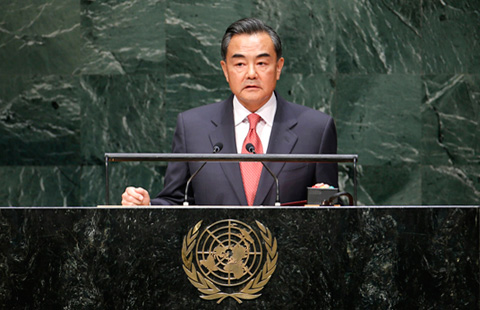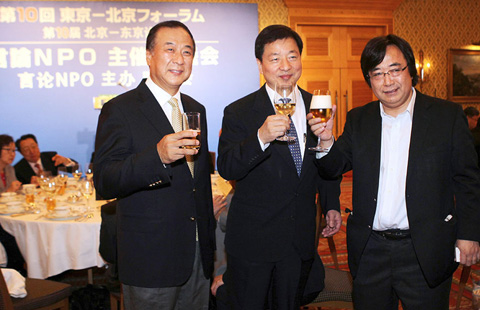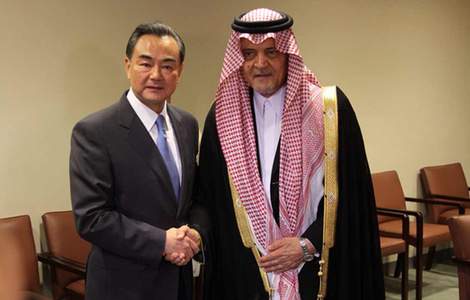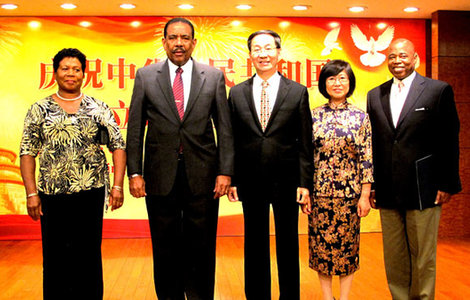'Strategic mistrust' in way of better relations
Updated: 2014-09-27 08:00
By Zhang Yunbi(China Daily)
|
||||||||
Both Japan and China should face up to the reality that a "lasting strategic mistrust" between them is the major factor behind their divergence and conflicting approaches, a veteran security policy expert told China Daily.
Zhang Tuosheng, director of research and senior fellow at the China Foundation for International Strategic Studies, said the two neighbors have been skeptical of each other when examining the respective growing strength of national defense.
This year marks the 100th anniversary of the start of World War I, and a number of prominent figures in Japan - including Prime Minister Shinzo Abe - have compared the current China-Japan relationship to the one a century ago between Germany and Britain.
"The pessimism over the region's situation should not go too far. I believe it is incorrect to assume that the East Asia region has come to a situation similar to the eve of World War I," Zhang said.
Zhang noted that the region is relatively peaceful and stable compared with a range of hot spots in the world, and he said that "the disputes and divergences - if handled appropriately - can remain under control".
In recent years, the two sides have increasingly traded barbs on a range of subjects, including diplomacy and the military.
Among these, Zhang noted, were descriptions in Japan of China's strategic role as "China's increasing threat", and the catchphrase in China describing Japan's defense policy as "the revitalization of Japan's militarism".
Japanese defense authorities have frequently accused China of stalking Japanese reconnaissance aircraft, while Beijing has shrugged off the allegations and even offered video footage of the airspace confrontations above the East China Sea to show what happened.
As the differences increase, China's national defense forces are growing quickly and Japan is seeking to "normalize" its self-defense forces - both of which have given rise to the mistrust, Zhang said.
"In return, it (the mistrust) has worsened the overall bilateral relationship," Zhang said.
In 2010 and 2012, the world witnessed two major impasses that occurred around China's Diaoyu Islands. The one in 2012 prompted what observers called the largest crisis between China and Japan since they normalized diplomatic relations in 1972.
The Japanese government unilaterally announced a decision to "nationalize" the islands in September 2012, prompting China to begin regular patrols around the islands.
The absence of a crisis management mechanism between the two governments is another factor behind the deteriorating relationship, Zhang said.
"The two confrontations in 2010 and 2012 show the loss of control over the spiraling crisis. If the crisis had been handled in a successful manner, the ties would look totally different today," he said.
Most Viewed
Editor's Picks

|

|

|

|

|

|
Today's Top News
'The ticket changed my destiny'
Chicago air traffic center fire grounds 1,750 flights
Li: Financial reform gains steam
China supports UN peacekeeping
Forum ready to narrow gap in trust
7 officials punished over fatal school stampede
iPhone 6 goes on sale in Taiwan
China city bans nepotistic official associations
US Weekly

|

|















